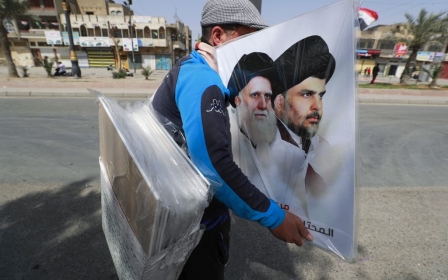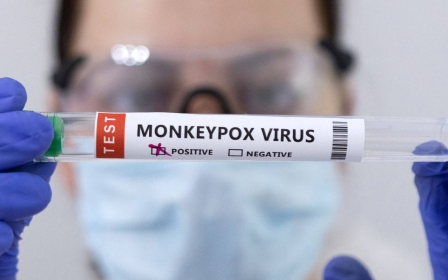Pakistan says its first mpox patient travelled from Gulf country

Pakistan on Friday confirmed its first mpox case in a patient who had recently arrived from the Gulf, just two days after the World Health Organization (WHO) declared the virus a public health emergency of international concern.
"The first case of mpox has been confirmed in Pakistan," a health ministry spokesperson said, adding that it remains unclear whether the patient carries the new highly contagious strain spreading in Africa.
According to a Reuters report, the man carrying the virus had recently arrived from Saudi Arabia and is now missing. He is from Mardan, a district in the Khyber Pakhtunkhwa (KP) province bordering Afghanistan.
Earlier on Friday, the KP provincial health department reported two additional mpox cases, which it said originated from the United Arab Emirates (UAE). However, the department later retracted this claim.
Pakistan's health ministry did not immediately respond to Middle East Eye’s request for clarification.
New MEE newsletter: Jerusalem Dispatch
Sign up to get the latest insights and analysis on Israel-Palestine, alongside Turkey Unpacked and other MEE newsletters
According to the ministry, officials at border crossings and airports have been instructed to collect samples for medical testing from any travellers coming from abroad who show symptoms of the disease.
The virus spreads through close physical contact and causes symptoms such as fever, muscle aches and large, boil-like skin lesions.
Currently, there are no officially reported cases of the new strain of the virus in the Middle East and North Africa. However, according to the WHO, the UAE has had 16 confirmed cases of previous strains of the virus since 2022.
The emergence of a new, more dangerous strain of mpox - formerly known as monkeypox - in Africa has affected the Democratic Republic of the Congo (DRC), Burundi, Kenya, Rwanda and Uganda, prompting the WHO to declare its highest level of alert.
On Thursday, Sweden reported the first case of the evolved virus outside Africa.
Following the case in Sweden, the WHO warned that Europe will likely face more cases.
"The confirmation of mpox Clade 1 in Sweden is a clear reflection of the interconnectedness of our world," the WHO’s European regional office in Copenhagen said in a statement, adding it was "imperative that we don't stigmatise travellers or countries/regions".
WHO Director-General Tedros Adhanom Ghebreyesus stressed on Wednesday the need for a coordinated international response to stop these outbreaks and save lives.
This is the second time in two years that mpox has been declared a public health emergency of international concern (PHEIC).
Caused by an Orthopoxvirus, mpox was first discovered in research monkeys in Denmark in 1958 and was detected in humans in 1970 in the DRC. The disease is considered endemic to central and west African countries.
This year alone, over 14,000 cases and 524 deaths have been reported in Congo, surpassing the totals from the previous year.
Middle East Eye delivers independent and unrivalled coverage and analysis of the Middle East, North Africa and beyond. To learn more about republishing this content and the associated fees, please fill out this form. More about MEE can be found here.




